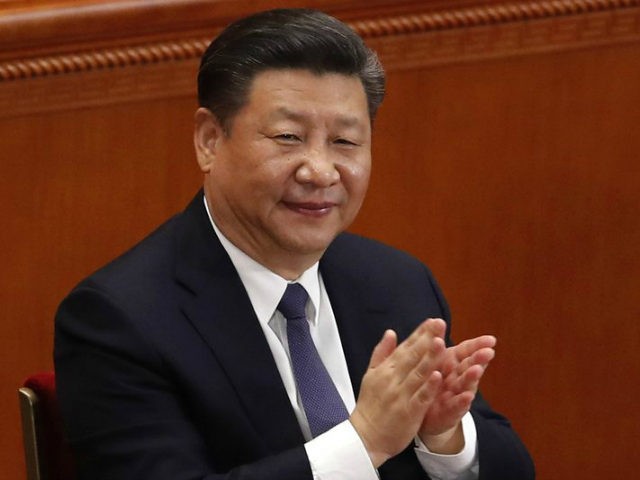A horror-themed videogame called Devotion from Taiwanese studio Red Candle Games was forced off the immensely popular Steam online marketplace this week because angry Chinese users bombed it with negative reviews for allegedly insulting Chinese President Xi Jinping.
Devotion is a psychological horror game with a leisurely pace – a “detective” game in which the user explores an eerie apartment and pieces together clues about the terrible fate of the family that lived there, rather than a high-adrenaline “run away from the monsters” experience. Most of the game consists of examining and collecting objects to unravel the mystery, encountering gruesome images and unsettling themes along the way. The game takes only a few hours to complete, and the player is not generally in danger of “dying” or “losing.”
Games of this type might not sound like a thrill ride, or even much of a “game” in the common sense of the term, but they can be very effective horror experiences. The player is essentially reading a visual novel that unfolds interactively. You find out what’s inside an ominous box when you decide to open it, not when a book author or film director chooses to show you the contents. The interactivity of the experience makes it feel personal, as in the legendary “lost” game P.T., which many reviewers have favorably compared Devotion to.
The new game is creepy enough to immediately become popular on the Twitch game streaming service, which means a lot of people are basically watching other people play the game.
As it happens, exploring the clues presented in Devotion include a poster that resembles a cursed scroll in Chinese culture. The poster lays a curse upon two individuals: Chinese President Xi Jinping and beloved cartoon bear Winnie the Pooh, to whom Xi was compared in a famous meme popular among Xi’s critics. The Chinese Communist regime is so touchy about Xi-Pooh comparisons that it banned Winnie the Pooh from China and has even forced him out of the public eye in foreign cities visited by Xi.
The scroll in Devotion furthermore labels Xi and/or Pooh a “moron.” This is not much of a problem for Pooh, a self-described “bear of little brain,” but it does not sit well with Xi Jinping and his admirers.
Another bit of scenery reportedly discovered in Devotion is a newspaper headline that reads “Baozi has been sentenced to prison” and ordered to face “capital punishment.” Baozi is a Chinese word for “dumpling” that is also satirically employed to refer to the dumpling-shaped Chinese president. Neither of these items is prominently displayed in the game, so they could be missed by casual players.
After Red Candle Games posted Devotion for sale on the massive online game store called Steam, Chinese users flooded its page with negative reviews and angry comments. Some objected to the game insulting Xi, some criticized Red Candle for inserting political commentary into a non-political game (an “offense” that would erase quite a few computer games from the market if universally prosecuted) and some claimed to be seriously freaked out by the realistic-looking curse poster, which met all the requirements for a “legitimate” supernatural weapon in Chinese culture.
Game journalists following the controversy suggested Taiwanese gamers essentially goaded the Chinese by bragging on Internet forums about how the Chinese were tricked into buying a game with anti-Xi messages.
The game, which was enjoying generally positive reviews, was thrust into negative territory by the onslaught of political criticism, a practice known as “review bombing.” As in many such cases, observers noted it can be difficult to separate sincere criticism from organized efforts to suppress products by down-voting them, possibly employing bots and fake users. Some of the review-bombers moved right along to down-vote the previous release from Red Candle, a game called Detention.
Devotion was removed from the Steam marketplace as a result of the negative feedback as a result of fewer than 3,000 negative reviews.
In a Facebook post on Monday, Red Candle said the game was pulled for “technical issues” and “other reasons.” The company suggested its game was only temporarily removed, not permanently banned, and would be restored once the development team can “review the game material once again making sure no unintended materials were inserted in.”
The developers clarified in a message to Steam customers that the material Chinese players found offensive was inserted as placeholders for artwork in the finished product but inadvertently left in the live release. They said the Xi/Pooh curse poster was already removed in an update to the game, which raised the awkward point that many Chinese players stole the game and cannot receive patches for their pirated copies.
“We are deeply sorry for the trouble it caused to everyone, and that we sincerely ask for the forgiveness of our players,” Red Candle wrote on Steam.
The Devotion incident has unsettling implications for free speech and China’s “sharp power,” its habit of using economic muscle to enforce its speech codes and other political preferences on free countries.
Whether the review-bombing was organized and riddled with bots, or a heartfelt complaint from Chinese gamers, three thousand negative reviews is not a difficult bar to cross for getting a product removed from a major retail site. Red Candle’s response suggests it was their idea to pull the game and make it more palatable to Chinese customers, but the fact remains economic power was employed to censor a production that did nothing wrong under American standards of free speech.
Of course, that sort of thing happens in America quite frequently these days, where scarcely a week goes by without stories of review-bombing and heavy-handed responses to it. The problem is that China will prove far more effective at using these censorship methods than anyone else, especially if the Chinese government gets involved in organizing the attacks.

COMMENTS
Please let us know if you're having issues with commenting.